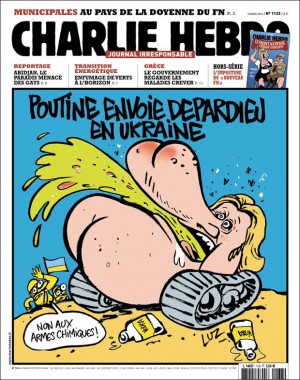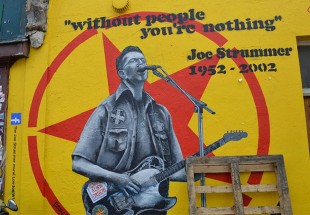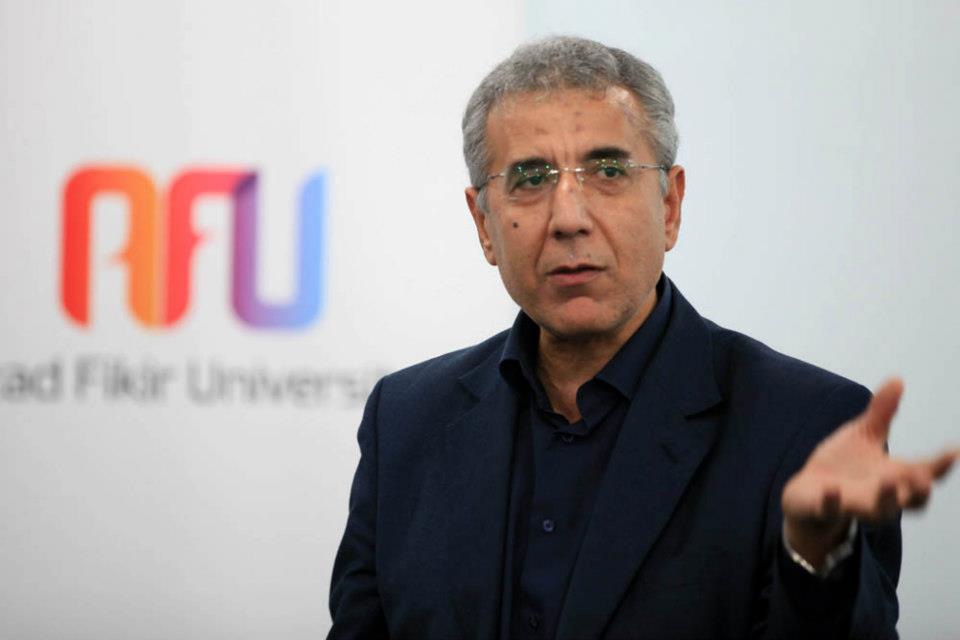Index relies entirely on the support of donors and readers to do its work.
Help us keep amplifying censored voices today.

On the anniversary of the brutal attack on the offices of Charlie Hebdo we, the undersigned, reaffirm our commitment to the defence of the right to freedom of expression, even when that right is being used to express views that some may consider offensive.
The Charlie Hebdo attack, which left 11 dead and 12 wounded, was a horrific reminder of the violence to which journalists, artists and other critical voices are subjected in a global atmosphere marked by increasing intolerance of dissent. The killings inaugurated a year that has proved especially challenging for proponents of freedom of opinion.
Non-state actors perpetrated violence against their critics largely with impunity, including the brutal murders of four secular bloggers in Bangladesh by Islamist extremists, and the killing of an academic, M M Kalburgi, who wrote critically against Hindu fundamentalism in India.
Despite the turnout of world leaders on the streets of Paris in an unprecedented display of solidarity with free expression following the Charlie Hebdo murders, artists and writers faced intense repression from governments throughout the year. In Malaysia, cartoonist Zunar is facing a possible 43-year prison sentence for alleged ‘sedition’; in Iran, cartoonist Atena Fardaghani is serving a 12-year sentence for a political cartoon; and in Saudi Arabia, Palestinian poet Ashraf Fayadh was sentenced to death for the views he expressed in his poetry.
Perhaps the most far-reaching threats to freedom of expression in 2015 came from governments ostensibly motivated by security concerns. Following the attack on Charlie Hebdo, 11 interior ministers from European Union countries including France, Britain and Germany issued a statement in which they called on Internet service providers to identify and remove online content ‘that aims to incite hatred and terror.’ In July, the French Senate passed a controversial law giving sweeping new powers to the intelligence agencies to spy on citizens, which the UN Human Rights Committee categorised as “excessively broad”.
This kind of governmental response is chilling because a particularly insidious threat to our right to free expression is self-censorship. In order to fully exercise the right to freedom of expression, individuals must be able to communicate without fear of intrusion by the State. Under international law, the right to freedom of expression also protects speech that some may find shocking, offensive or disturbing. Importantly, the right to freedom of expression means that those who feel offended also have the right to challenge others through free debate and open discussion, or through peaceful protest.
On the anniversary of the Charlie Hebdo attacks, we, the undersigned, call on all Governments to:
PEN International
ActiveWatch – Media Monitoring Agency
Adil Soz – International Foundation for Protection of Freedom of Speech
Africa Freedom of Information Centre
ARTICLE 19
Bahrain Center for Human Rights
Belarusian Association of Journalists
Brazilian Association for Investigative Journalism
Bytes for All
Cambodian Center for Human Rights
Canadian Journalists for Free Expression
Center for Independent Journalism – Romania
Center for Media Freedom and Responsibility
Comité por la Libre Expresión – C-Libre
Committee to Protect Journalists
Electronic Frontier Foundation
Foundation for Press Freedom – FLIP
Freedom Forum
Fundamedios – Andean Foundation for Media Observation and Study
Globe International Center
Independent Journalism Center – Moldova
Index on Censorship
Initiative for Freedom of Expression – Turkey
Institute for the Studies on Free Flow of Information
Instituto de Prensa y Libertad de Expresión – IPLEX
Instituto Prensa y Sociedad de Venezuela
International Federation of Journalists
International Federation of Library Associations and Institutions
International Press Institute
International Publishers Association
Journaliste en danger
Maharat Foundation
MARCH
Media, Entertainment and Arts Alliance
Media Foundation for West Africa
National Union of Somali Journalists
Observatorio Latinoamericano para la Libertad de Expresión – OLA
Pacific Islands News Association
Palestinian Center for Development and Media Freedoms – MADA
PEN American Center
PEN Canada
Reporters Without Borders
South East European Network for Professionalization of Media
Vigilance pour la Démocratie et l’État Civique
World Association of Community Radio Broadcasters – AMARC
PEN Mali
PEN Kenya
PEN Nigeria
PEN South Africa
PEN Eritrea in Exile
PEN Zambia
PEN Afrikaans
PEN Ethiopia
PEN Lebanon
Palestinian PEN
Turkish PEN
PEN Quebec
PEN Colombia
PEN Peru
PEN Bolivia
PEN San Miguel
PEN USA
English PEN
Icelandic PEN
PEN Norway
Portuguese PEN
PEN Bosnia
PEN Croatia
Danish PEN
PEN Netherlands
German PEN
Finnish PEN
Wales PEN Cymru
Slovenian PEN
PEN Suisse Romand
Flanders PEN
PEN Trieste
Russian PEN
PEN Japan
Music has long been used as a form of resistance, from civil rights movements to the fall of the Berlin Wall. The latest issue of Index on Censorship magazine, focusing on taboos and the breaking down of social barriers, features an exclusive new short story by Ariel Dorfman about a military trumpeter who plays a defiant, rebellious song on his instrument.
In honour of the story, we have compiled a playlist of music that has been used as protest and resistance from all over the world. The influence of these songs show just how powerful music can be as a form of rebellion.
Many artists on the list have been forced into exile or censored. Index on Censorship has teamed up with the award-winning makers of the documentary They Will Have To Kill Us First to launch the Music in Exile Fund, which will help support musicians in similar situations.
Beethoven’s Ninth Symphony – Ode to Joy
Ode to Joy has been adopted by many protest movements around the world. Most notably the song was played on the streets of Chile in resistance to the Pinochet dictatorship. Demonstrators gathered outside prisons singing Ode to Joy, giving strength to the prisoners who suffered torture there at the hands of the regime.
Joan Baez – We Shall Overcome
We Shall Overcome is a key protest song of the civil rights movement. The song, which has been covered by various artists, was first used in 1945 by tobacco workers fighting for better pay in Charleston, South Carolina. The song, with its message of solidarity and hope, has been used in many protests around the world, not least in the 1950s and 1960s by activists in the American civil rights movement.
Vuyisile Mini – Ndodemnyama we Verwoerd
Ndodemnyama we Verwoerd (Watch Out, Verwoerd) is one of the most well-known songs in South Africa due to its association with the campaign against apartheid. Hendrik Verwoerd, who served as prime minister of South Africa until his assassination in 1966, became known as the “architect of apartheid” for his role in implementing the system of racial segregation. Unsurprisingly, he became the subject of many protest songs, including Ndodemnyama we Verwoerd by Vuyisile Mini. Mini became one of the most powerful organisers of the resistance, earning himself the moniker the “organiser of unorganised”. He was sentenced to death in 1964 on charges of sabotage and political crimes and is said to have sung the song while being led to the gallows.
The Scorpions – Wind of Change
November 2015 marked the 25th anniversary of the fall of the Berlin wall. Many songs have been associated with the demise of the wall, which divided Berlin for nearly three decades, particularly Wind of Change by German heavy metal band The Scorpions. The song, one of peace and hope, was released a few months after the wall was torn down and became one of the top-selling singles of 1991. The music video to Wind of Change shows footage of the wall being removed.
Songhoy Blues – Al Hassidi Terei
The four members of Songhoy Blues met as refugees after being forced into exile by Muslim extremists who banned all music in Mali in 2012. In defiance of the extremists, they formed the desert blues band, refusing to have music taken away from them. They have since gone on to work with Damon Albarn of Blur and Nick Zimmer of the Yeah Yeah Yeahs, been on an international tour and were nominees for the arts category of the Index on Censorship Freedom of Expression Awards 2014.
Ramy Essam – Irhal
Irhal became known as the anthem of Egypt’s uprising against President Mubarak’s after singer Ramy Essam performed the song during the 2011 protests in Tahrir Square. Irhal, which urges the president to resign, became internationally known after Essam’s performance was posted on YouTube during the protests. After the revolution, Essam returned to Tahrir Square where he was arrested and tortured by the military council. He was offered safe city residence in Sweden following his arrest and has been living there since 2014.
Tropicália/Gilberto Gil – Miserere Nóbis
The Tropicália movement is a brief artistic movement that took place in Brazil in the 1960s. During the movement, which was co-founded by Gilberto Gil and Caetano Veloso, musicians expressed their resistance to the country’s military dictatorship through their music and their socially and politically charged lyrics. The movement only lasted around a year before being suppressed by the military regime. Gil and Veloso were arrested in 1969 and forced to live in exile in London for the political content of their work but returned to Brazil in 1972.
Billie Holiday – Strange Fruit
Strange Fruit, most famously performed by Billie Holiday, protests American racism and the lynching of African Americans. The song began as a poem written by teacher Abel Meeropol published in 1937; Who then set it to music and performed it as a protest song at various venues in New York in the late 1930s along with his wife and the singer Laura Duncan.
Chieftains and Sinead O’Connor – Foggy Dew
Foggy Dew is the name of several old Irish ballad. This version of the song chronicles the Easter Rising of 1916 in Dublin when Irishmen fought for the cause of Irish independence. During World War I, thousands of Irishmen served in the British forces. Many Irish nationalists felt they should have stayed in Ireland and fought for Irish independence, which is reflected in the song.
Killing in the Name – Rage Against The Machine
American rap-metal band Rage Against the Machine released Killing in the Name in 1992, six months after the Los Angeles riots, which were triggered after four white police officers were acquitted of beating black motorist Rodney King. The song is institutional racism and police brutality. Known for its excessive use of expletives, Killing in the Name originally received little air time.

Joe Strummer (The Clash) mural, London. Credit: Flickr / Matt Brown
The Clash – White Riot
When The Clash released White Riot, many people thought it was a song advocating some kind of race war. This couldn’t be further from the truth. With the lyrics, Joe Strummer was appealing to white youths to find a worthy cause to fight (or riot) for, just as many black youths had in the UK at the time. At its heart, it is a song about class and race.
Bob Marley – Get Up, Stand Up
Bob Marley is renowned for his songs about peace, love and resistance. With Get Up, Stand Up being one of his most well-known protest songs. Marley wrote the song with fellow Jamaican musician Peter Tosh as a challenge to oppression. The song is famed for the lyrics: “You can fool some people sometimes but you can’t fool all the people all the time.”
Pete Seeger – Joe Hill
Joe Hill was a miner, songwriter and union organiser for the Industrial Workers of the World (IWW). Hill was executed in America in 1915 following a controversial trial in which he was found guilty of the murders of John G Morrison and his son Arling. Hill refused to testify at his trial believing he would be worth more to the labour movement as a dead martyr than alive. After his death, Hill was the subject of songs by various artists, including Paul Robeson, Joan Baez and Pete Seeger.
Sam Cooke – A Change Is Gonna Come
A Change Is Gonna Come has been covered by various artist but was originally written by Sam Cooke. The song is another civil rights anthem concerning the struggles of African Americans during the 1960s. Cooke was said to have been inspired to write to song by various events in his life, predominantly being turned away from a “whites only” hotel. The singer was shot and killed just before the song was due to be released as a single in 1964.
Tinariwen – Lulla
Tinariwen are made up of musicians from the Tuareg community, whose music reflects the issues faced by the Tuareg people. The musicians received military training when they were living in exile in Libya in the 1980s, and many of the members of Tinariwen were rebel fighters in the 1990 revolt against the Malian government. In 1991, the collective, who’s name translates to “the people of the desert”, left the military to focus on music on a full-time basis.
Eagles of Death Metal – People Have the Power
On 8 December, Eagles of Death Metal joined U2 on stage in Paris, just three weeks after Muslim extremists launched an attack at their concert at the Bataclan Theatre, killing 89 people, plus 41 in two other attacks. Together the bands performed a cover of Patti Smith’s People Have the Power, showing bravery and resistance against the terrorists who left the city in fear.
You can read the Ariel Dorfman’s new short story, All I Ever Have, about music as a form of resistance in the latest Index on Censorship magazine. Each magazine sale helps Index on Censorship fight for free expression worldwide. Order your copy here, or take out a digital subscription via Exact Editions (just £18 for the year).
A graffiti artist who paints murals in war-torn Yemen, a jailed Bahraini academic and the Ethiopia’s Zone 9 bloggers are among those honoured in this year’s #Index100 list of global free expression heroes.
Selected from public nominations from around the world, the #Index100 highlights champions against censorship and those who fight for free expression against the odds in the fields of arts, journalism, activism and technology and whose work had a marked impact in 2015.
Those on the long list include Chinese human rights lawyer Pu Zhiqiang, Angolan journalist Sedrick de Carvalho, website Raqqa is Being Slaughtered Silently and refugee arts venue Good Chance Calais. The #Index100 includes nominees from 53 countries ranging from Azerbaijan to China to El Salvador and Zambia, and who were selected from around 500 public nominations.
“The individuals and organisations listed in the #Index100 demonstrate courage, creativity and determination in tackling threats to censorship in every corner of globe. They are a testament to the universal value of free expression. Without their efforts in the face of huge obstacles, often under violent harassment, the world would be a darker place,” Index on Censorship CEO Jodie Ginsberg said.
Those in the #Index100 form the long list for the Index on Censorship Freedom of Expression Awards to be presented in April. Now in their 16th year, the awards recognise artists, journalists and campaigners who have had a marked impact in tackling censorship, or in defending free expression, in the past year. Previous winners include Nobel Peace Prize winner Malala Yousafzai, Argentina-born conductor Daniel Barenboim and Syrian cartoonist Ali Ferzat.
A shortlist will be announced in January 2016 and winners then selected by an international panel of judges. This year’s judges include Nobel Prize winning author Wole Soyinka, classical pianist James Rhodes and award-winning journalist María Teresa Ronderos. Other judges include Bahraini human rights activist Nabeel Rajab, tech “queen of startups” Bindi Karia and human rights lawyer Kirsty Brimelow QC.
The winners will be announced on 13 April at a gala ceremony at London’s Unicorn Theatre.
The awards are distinctive in attempting to identify individuals whose work might be little acknowledged outside their own communities. Judges place particular emphasis on the impact that the awards and the Index fellowship can have on winners in enhancing their security, magnifying the impact of their work or increasing their sustainability. Winners become Index on Censorship Freedom of Expression Awards Fellows and are given support for the year after their fellowship on one aspect of their work.
“The award ceremony was aired by all community radios in northern Kenya and reached many people. I am happy because it will give women courage to stand up for their rights,” said 2015’s winner of the Index campaigning award, Amran Abdundi, a women’s rights activist working on the treacherous border between Somalia and Kenya.
Each member of the long list is shown on an interactive map on the Index website where people can find out more about their work. This is the first time Index has published the long list for the awards.
For more information on the #Index100, please contact [email protected] or call 0207 260 2665.

Intigam Aliyev
Intigam Aliyev, a human rights defender and a lawyer who specialised in defending the rights of Azerbaijani citizens before the European Court of Human Rights, is spending his second birthday in prison.
“All our thoughts are with Intigam as he spends yet another birthday in jail,” Index on Censorship senior advocacy officer Melody Patry said.
In April 2015, Aliyev was sentenced to 7.5 years imprisonment for illegal business activities, tax evasion and abuse of power. The case was widely condemned as being politically motivated by Azerbaijan’s government.
Aliyev, who ran the Azerbaijan-base Legal Research Institute, was one of a score of prominent human rights activists and journalists who were arrested and subjected to show trials in 2014 and 2015. A new report details the judicial harassment that Azerbaijan’s civil society has been subjected to.
Take action: Send your birthday wishes to Intigam Aliyev